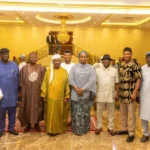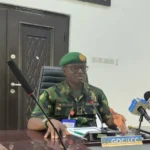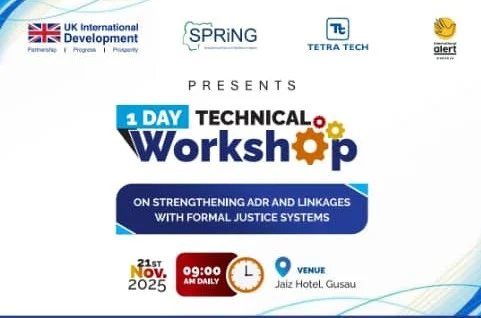By Ishaq Zaki
Stakeholders in Zamfara, Katsina and Sokoto States have expressed readiness towards promoting Alternate Dispute Resolution (ADR) through access to justice and accountability.
The News Agency of Nigeria (NAN) reports that the stakeholders made the resolution in separate presentations at a one-day technical workshop organised to strengthen ADR and linkages with formal justice system in Gusau, Zamfara.
The workshop, organised by an NGO, International Alert, had participants drawn from the three states including traditional and religious leaders, security agencies, legal practitioners, judiciary officers and the National Human Rights Commission (NHRC), among others.
The workshop was part of the NGO’s support to the states governments to establish Multi-Door Courts for enhanced ADR process.
The Permanent Secretary, Zamfara Ministry of Women Affairs and Social Development, Hajiya Suwaiba Barau, described the workshop as timely.
Barau stated that the proposed bill to establish multi-door courts in Zamfara, when passed into law, would enhance access to justice and would reduce backlog of cases in the courts.
According to her, enhancing the ADR system would also strengthen collaboration between courts, ADR centres, and communities.
“On behalf of the Zamfara Ministry of Women Affairs and Social Development, we are ready to partner with you to ensure effective strengthening of ADR and linkages with formal justice system,” Barau said.
Also speaking, the representative of Sokoto State Ministry of Justice, Hajiya Aisha Ahmad, commended Zamfara Government for making efforts to establish the multi-door courts in the state.
Ahmad said that the multi-door courts would enhance easy justice delivery through faster and common processes including mediation, arbitration, and negotiations.
The Zamfara Commissioner for Justice, Abdul’aziz Sani, SAN, commended the International Alert for both the technical and financial support towards enhancing the ADR system in the state.
Sani described the workshop as the better way of stakeholders’ engagement and sensitisation towards strengthening the ADR system in the states.
According to him, the move by the Zamfara Government to establish the multi-door courts was part of Gov. Dauda Lawal’s efforts to ensure an enhanced justice administration for sustainable peace in the state.
He assured of the government’s readiness to continue to partner with the NGO in promoting justice, fairness and accountability in the state.
The Secretary, State House of Assembly Committee on Justice and Judiciary, Bello Aliyu, said the bill for the establishment of the multi-door courts in the state would soon be passed into law.
According to him, the bill, which had already passed first and second readings, would soon be passed into law.
He lauded NGi for its financial and capacity building support to the state legislature in the process to establish the multi-door courts in the state.
Mr Sunday Momoh, the Programme Manager, International Alert, in a presentation on ADR Standard Operations Procedures (SOP) and guidelines, identified the stakeholders involved, and outlined the procedures to ease the process.
Momoh, represented by Mr Stephen John, the Project Officer of the NGO, said the presentation defined the goals of the ADR referral system.
“This section outlines the constitutional, statutory, Sharia, customary, and administrative laws supporting the ADR system.
“To also identify the specific laws in the state that empower ADR referral processes and ensure all the procedures are legal,” he said.
Momoh said that the SOP system and guidelines also defined the responsibilities of all actors, such as judges, ADR centre staff, mediators, traditional leaders, LGA liaison units, and psychosocial support teams.
“This is to clearly assign roles for the state to avoid duplication, confusion, or gaps in the referral process.
“On the operational timelines, the section provides the timelines for each stage of the ADR process.
“For example, referrals within seven days, mediation within 30 days, liaison review within five-seven days,” Momoh explained. (NAN)(www.nannews.ng)
Edited by Shuaib Sadiq/Bashir Rabe Mani












